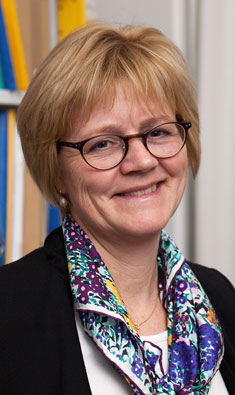New research project coordinated by DGG will challenge assumptions on urbanisation and poverty in Africa
Jytte Agergaard, researcher at DGG, is to lead a new project financed by the EU that will analyse rural-city connections and provide decision makers with new insights of relevance for future planning.
Over the coming years, Sub-Saharan Africa is expected to have the highest rates of urban growth in any major region. However, many decision makers in these countries tend to see urban growth as a problem that increases poverty levels, and have policies to reduce migrant flows to the large cities. This is often done based on a number of assumptions, e.g. that Africa’s economic base is predominantly agricultural; that the creation of slum areas in the cities only depends on migration from rural areas, and not on the natural growth in the urban areas; and that urban development can be dealt with without looking at broader socio-economic developments.
With the title ”Africa Rural-City Connections” (RurbanAfrica) this new project will explore the connections between rural transformation, mobility and urbanisation processes. The project will e.g. analyse growth in the informal sector in urban areas, and how producing goods for the urban markets, commuting and temporary migration are used strategically by families to stay above the poverty line. The projects will also look at growth and development in the cities, including development of access to services such as water, sanitation and education. The aim of this is to contribute to an understanding of the scale, nature and location of poverty in sub-Saharan Africa - an understanding that is necessary for improved future planning.
A unique feature of the RurbanAfrica project is the fact that researchers will engage in dialogue with existing research and policy networks at local, national and regional level from the very beginning of the project. One of the main goals of the project is to provide insights that can be used by decision makers as understanding the connections between rural areas and cities is vital for planning for the future needs of the residents in sub-Saharan African countries.
The project will last four years from 2012 to 2016, and involves nine universities and research institutes from European and African countries, including the Netherlands, France, the United Kingdom, Rwanda, Tanzania, Cameroon, and Ghana. It is financed with a grant of DKK 2,7 M from the European Union. If you have any questions concerning the project, please contact the project leader, Assicoate Professor at the Department of Geography and Geology, Jytte Agergaard.
Associate professor Jytte Agergaard

Read more >>>
